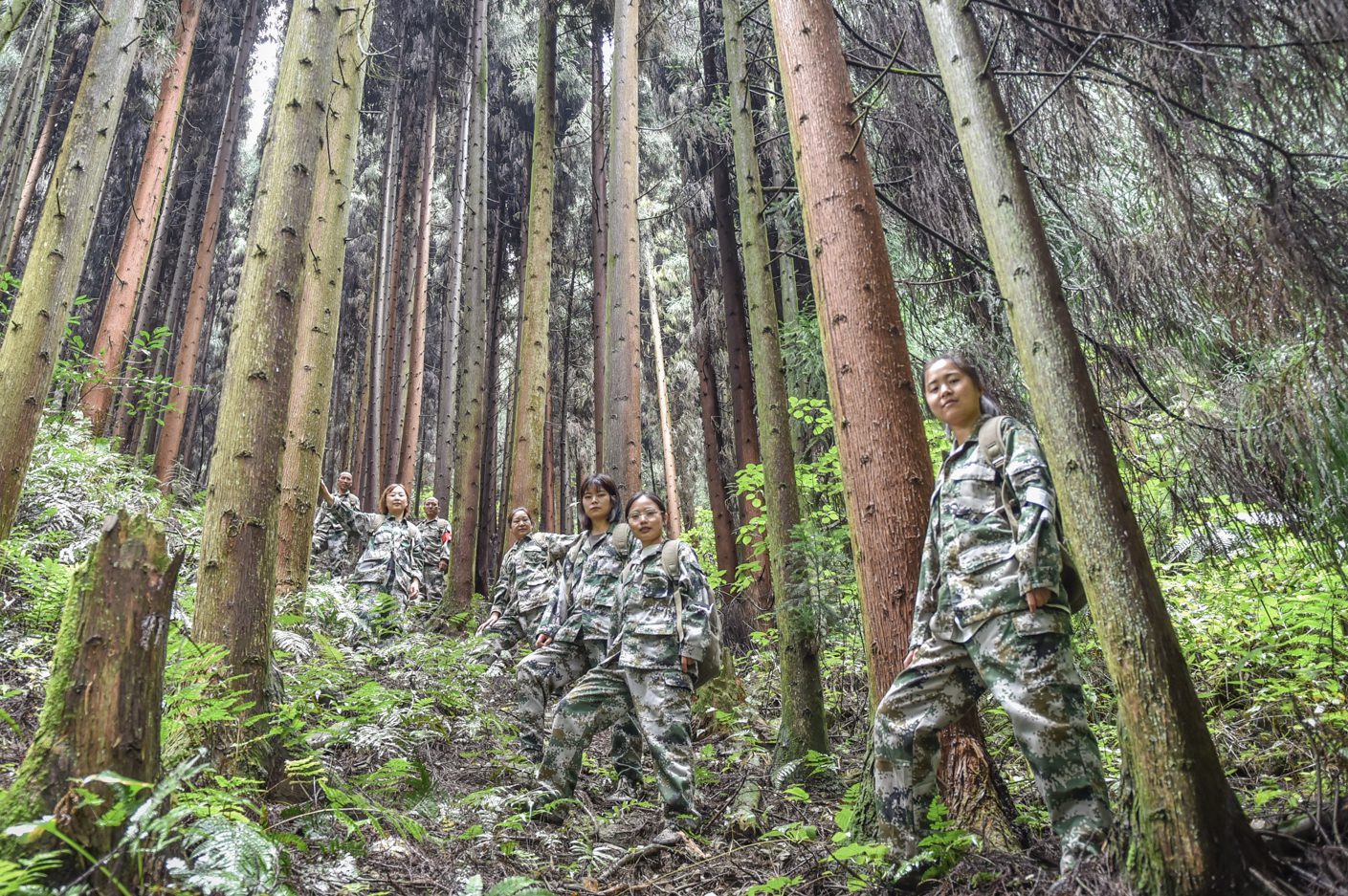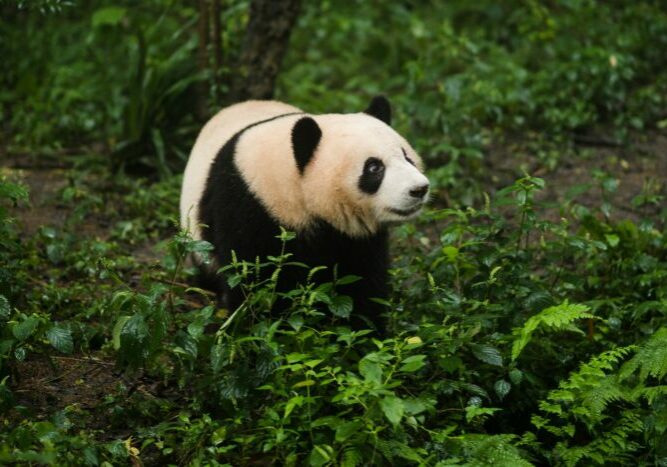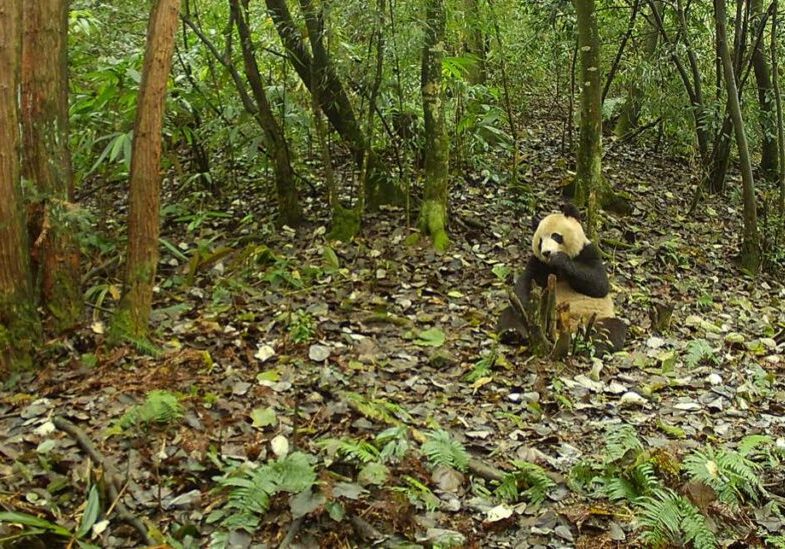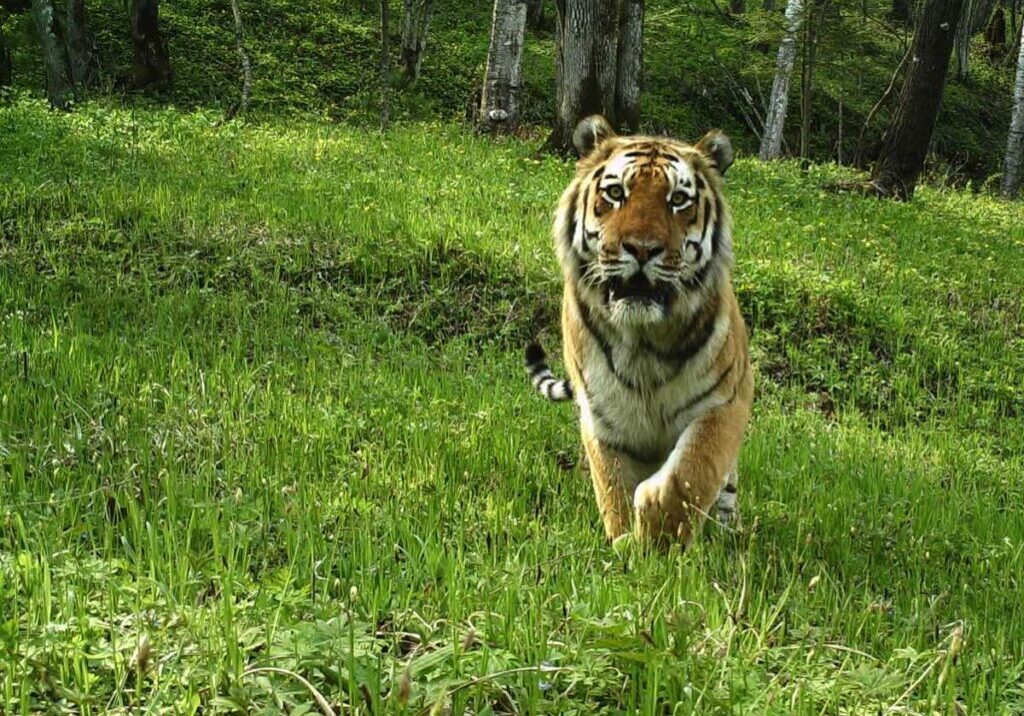
© LIAO ZHIJUAN / WWF-CHINA
Yang Guorong leads a unique group of women – an all-female conservation patrol team. The team are from communities in the Dujiangyan area of the Giant Panda National Park in south-west China’s Sichuan province. As well as regularly monitoring the forests on their doorsteps, the women talk to local people about conservation and encourage them to find out more about local wildlife.
The park itself is home to 72% of China’s panda population, and the protected areas in and around the park are also home to other rare wildlife and plants.
Yang tells us about her involvement with the patrol group, and how the work isn’t just about protecting nature but inviting and educating other people to get involved too.
Have you always been interested in nature?
When I was a child I’d run wild in nature almost every day – my favourite thing was to play in the fields with my friends. In spring, the mulberry trees were full of caterpillar-like mulberries – my friends and I would eat so many our mouths turned black.
In summer, I’d sit under the stars in the evening and listen to the chorus of frogs in the yard.
But as I grew older, my focus shifted to studies and other parts of life, and I rarely had the opportunity to get close to nature.
How did you come to join the community patrol team?
When I saw an announcement about ranger recruitment, I felt like my relationship with nature was reconnected. I immediately signed up! In June 2020 I joined the Hongkou Community Volunteer Patrol Team and patrolled the mountains at least twice a month, slowly learning more about wildlife protection.

© LIAO ZHIJUAN / WWF-CHINA
Is the work dangerous?
In July 2020 the patrol team were out when heavy rain set in. The difficult mountain path became even harder to walk, and the previously quiet forest became dangerous. We had to leave immediately. We supported each other to come down the mountain, and when we reached the safe terrain we realised some of us had injured hands, some had sprained feet – and we were all covered in mud. Now we always check the weather forecast!
Why is the work you do so important?
Our job is to carry out field patrols, monitoring the area and collecting data in the forest that connects Hongkou with the Giant Panda National Park – we report traces of wild animals and plants. We also work with local communities, who are collecting herbs and picking bamboo shoots, to manage these forest resources sustainably.
Our work is important because a reduction in the number of wild animals and plants will lead to serious ecological problems.
How have you got local people to support what you do?
We decided to carry out nature education. It gives children more opportunities to get close to nature, to be aware of protecting nature from an early age, and they can become advocates to their family and friends.
It’s also an opportunity to demonstrate the great environment and rich natural resources of our community. Our clear waters and lush mountains are valuable assets.
I’d been a bit reluctant to take the first step with the education programme as I was shy and didn’t have the right professional knowledge. But in January 2023 we went on a three-day trip – supported by WWF – to learn from other groups of rangers. The exchange gave us inspiration and direction, and when we got back we began planning our first nature education activity.

© LIAO ZHIJUAN / WWF-CHINA
Have the education sessions been a success?
Our first activity had the theme ‘Searching for a beauty never encountered’, in which about 26 people from 10 local families explored the secrets of giant pandas. They got to visit a secret natural environment with their friends and experience the wonder of people and nature coexisting harmoniously in the national park.
After the event, everyone was excited and full of confidence. We’ll continue down the road of patrolling and nature education. We can show the beautiful environment of the Giant Panda National Park to more people, and our nature education classes will give the next generation the awareness to protect the environment from an early age.
Would you encourage more women to get involved in conservation?
We hope more women will join us and go into the wild, into the community and into the classroom, so that together we can contribute to a vibrant Earth.
Adopt a giant panda
You can help to protect the precious habitat that pandas and other rare species call home when you adopt a panda.
BANNER IMAGE: © LIAO ZHIJUAN / WWF-CHINA
More to explore

Pregnant panda spotted on camera – moments before giving birth
Rare camera trap footage of a female giant panda shows that forest restoration efforts are making a difference

